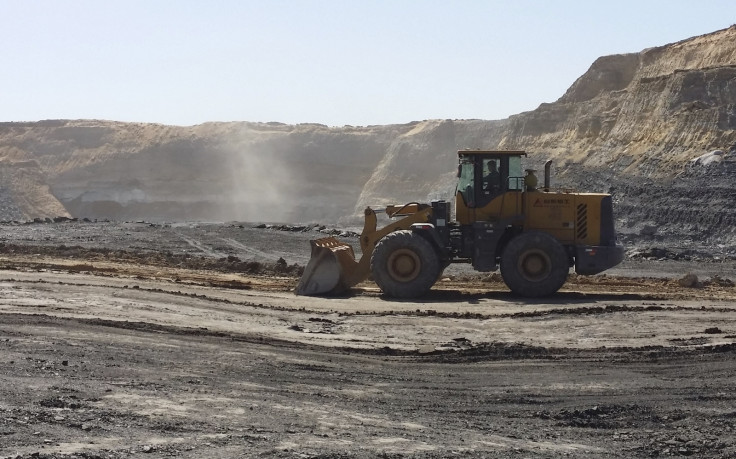China's 'War on Pollution' Sees Coal Drop for First Time in Century

China's coal consumption has declined for the first time in about 100 years in the first half of 2014, as the world's second largest economy is striving to achieve cleaner growth by declaring a "war on pollution".
Activist group Greenpeace International said in a blog post that China's coal use seems to have dropped in the first half of 2014, with halted growth of imports and declined domestic production.
While coal imports grew just 0.9% so far this year, compared to double-digit growth in previous years, domestic coal production has declined by 1.8% in China.
Coal prices are low in China at present and the China National Coal Association is calling for cutting second half domestic coal output by 10% in main producing provinces.
The historic decline comes after the country's coal consumption doubled in the past 10 years in line with the country's unprecedented economic growth.
Due to the increased use of coal, China has become a major polluter, causing more than half of rapid global CO2 growth over the same period. The country is facing an air pollution crisis at present.
In January, Beijing recorded an air pollution reading of over 20 times the limit considered healthy by the World Health Organisation (WHO).
The rise in air pollution is primarily due to an increase in the number of manufacturing companies and ever-rising vehicle sales in the country in line with improving living standards.
China's Premier Li Keqiang previously said tackling pollution is among the government's top priorities in 2014.
He noted that idle factories will be shut down and efforts for a new environmental protection tax will be accelerated to create a greener economy.
"China's response to the public outrage on air pollution has led to some very ambitious policies to curb coal consumption on the provincial level, from absolute cuts in coal use by 2017 to bans on new coal-fired power plants and factory shutdowns," reads the Greenpeace blog written by Lauri Myllyvirta.
Some attributed the slowing coal demand to China's economic growth slowdown, and noted that coal consumption growth will resume once the economy picks up.
Greenpeace noted that the link between China's coal consumption and economic growth has changed substantially.
"In the first five years of the century, coal use and GDP grew almost hand in hand. In the second half of last decade, while coal consumption growth remained incredibly fast, a gap opened between the growth rates of coal and GDP, widening in the first years of this decade. Finally, in the first half of 2014, the Chinese economy registered a year-on-year growth rate of 7.4% while coal consumption remained stable," it says.
Bloomberg earlier reported that coal consumption has been declining due to a surge in hydropower generation in the country.
However, Myllyvirta noted that China's 9.7% year-on-year increase in hydropower generation was "business-as-usual", and the increase was only capable of changing the coal consumption growth rate by less than one percentage point.
"A more fundamental explanation is that the structure of the Chinese economy is finally starting to change away from the energy intensive basic industries and investment," he said.
Growth in services excluding real estate and private consumption recently outpaced manufacturing industry, which had been China's growth engine.
"If this restructuring gains pace, along with the promising growth in renewable energy, it will enable the Chinese to increase their material welfare for a long time while reducing coal consumption."
© Copyright IBTimes 2024. All rights reserved.






















